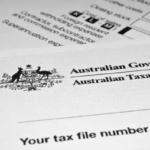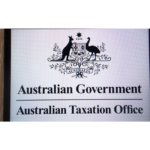The Laws, Defences and Penalties for Failing to Lodge a Tax Return in Australia

A Queensland lawyer who charged with five tax offences involving 105 breaches of taxation legislation has been suspended from practising law until 27 February 2026.
The Queensland Civil and Administrative Tribunal published a judgment on 18 September 2024 which found that sole practitioner Michael Anthony Graham failed to:
- Furnish an income tax return,
- Furnish 20 GST returns,
- Give nine yearly income tax returns,
- Give nine yearly income tax returns following notice in writing, and
- Give 66 monthly GST returns.
The tribunal rejected the lawyer’s submission that he should not be suspended because he has a ‘disposition for problem avoidance’, finding that while his conduct was not deliberate it was ‘a result of negligence’ and required significant disciplinary action.
Tribunal Member Paul Williams noted that ‘[t]here are parts of the [lawyer’s] explanation that are, for a responsible and competent practitioner or member of the community, difficult to rationalise.
The member added, ‘[s]imply getting organised and on top of his taxation affairs at an early stage was a practical solution’.
‘However, it appears from the respondent’s evidence that a form of procrastination set in such that he in effect found himself paralysed and unable to get it done’.
The Member noted that the legal profession’s conduct rules consider tax offences as serious, requiring all such offences to be reported to the Law Society.
In addition to the suspension, the lawyer was ordered to complete a professional training course and pay the Queensland Law Society’s legal costs.
The Offence of Failing to Lodge a Tax Return in Australia
Failing to lodge a tax return falls under the umbrella of ‘Failure to comply with requirements under taxation law’ which is an offence under section 8C of the Taxation Administration Act 1953 (Cth).
The section states that a person who refuses or fails to do any of the following acts when and as required under or pursuant to taxation law is guilty of an offence:
- Give any information or document to the Commissioner or another person,
- Give information to the Commissioner in the manner in which it is required under a taxation law to be given,
- Lodge an instrument with the Commissioner or another person for assessment,
- Notify the Commissioner or another person of a matter or thing,
- Produce a book, paper, record or other document to the Commissioner or another person,
- Attend before the Commissioner or another person,
- Comply with a superannuation guarantee education direction,
- Apply for registration or cancellation of registration under the A New Tax System (Goods and Services Tax) Act 1999,
- Comply with a requirement under subsection 45A(2) of the Product Grants and Benefits Administration Act 2000, which relates to grant or benefit record keeping, or
- Comply with subsection 82 – 10F(4) of the Income Tax (Transitional Provisions) Act 1997, which relates to receiving PAYG withholding payments.
Failure to comply with requirements under taxation law is an ‘absolute liability’ offence, which means the prosecution does not have to prove a mental element such as negligence, recklessness of intention – it need only prove beyond reasonable doubt that the refusal or failure took place.
Legal Defences
A person is not guilty of failing to comply with requirements under taxation law if he or she establishes, on the balance of probabilities, that he or she was not capable of complying.
General legal defences also apply to the offence, including the defence of duress which is where there is evidence to suggest the person was compelled by an imminent threat to his or her safety or that of a loved-one, such that he or she could not have rendered the threat ineffectual other than by committing the offence.
In the event evidence of a general legal defence is raised, the onus then shifts to the prosecution to prove beyond a reasonable doubt that the defence does not apply to the circumstances of the case.
Penalties
Section 8E of the Taxation Administration Act 1953 (Cth) prescribes the following maximum penalties for the offence of failing to comply with requirements under taxation law:
| Offence | Maximum fine | Maximum prison sentence |
| First offence | 20 penalty units | Not applicable |
| Second offence | 40 penalty units | Not applicable |
| Where previously convicted of 2 or more relevant offences and Tax Commissioner treats offence other than as a prescribed taxation offence | 50 penalty units | 12 months |
At the time of writing, one Commonwealth penalty unit is equivalent to $313, meaning the maximum fines are $6260 for a first offence, $12,520 for a second offence or $15,650 where a person has previously been convicted of two or more relevant offences and the Taz Commissioner treats the offence other than as a prescribed taxation offence.
The Criminal Offence of General Dishonesty
In addition to the above offences, failing to lodge a tax return or other taxation document can amount to the offence of ‘Obtaining financial advantage’ under section 135.2(1) of the Criminal Code Act 1995 (Cth), which is also known as ‘General Dishonesty’ and carries a maximum penalty of 12 months in prison.
To establish the offence, the prosecution will need to establish beyond reasonable doubt that the defendant:
- The defendant engaged in conduct as a result of which he or she obtained a financial advantage for himself or herself from another person,
- The defendant knew or believed he or she was not eligible to receive that financial advantage, and
- The entity from whom the advantage was obtained was a Commonwealth entity, such as the Australian Taxation Office.
The previously-mentioned offence of duress is also a legal defence to this charge.
Suspected of a Tax-Related Offence?
If you or your company is suspected of a tax offence, call Sydney Criminal Lawyers on (02) 9261 8881 to arrange a conference with our profession leading defence team who will provide you with expert legal advice and formidable representation, so you can move forward and focus on what’s important.






